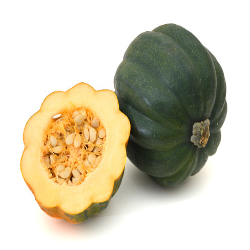Jerusalem sunchoke Nutrition facts
Jerusalem sunchoke

Jerusalem artichoke is a bumpy, fleshy, root vegetable of sunflower family plants. It's underground nutty, flavorful, the starch-rich root is eaten much the same way as potato in many parts of Western Europe and Mediterranean regions.
It should not be confused to globe artichoke, which is an edible flower bud. Similarly, their name is widely misunderstood as “artichokes from Jerusalem” misinterpreted for the Italian girasole carciofi, translating to sunflower artichoke in English. Some of the common names are sunroot, sunchoke, topinambur etc. Scientific name: Helianthus tuberosus.
Jerusalem artichokes are native to Central America. The plant is technically an evergreen perennial but cultivated as an annual crop. Once established, it grows vigorously reaching about 5-10 feet in height slightly taller than the sunflower plant with multiple branches. Many golden-yellow flower heads appear at the terminal end of branches.
Similar Food
-
 Acorn squash 40 Cal
Acorn squash 40 Cal -
 Amaranth greens 23 Cal
Amaranth greens 23 Cal -
 Artichoke 47 Cal
Artichoke 47 Cal -
 Arugula 25 Cal
Arugula 25 Cal -
 Asparagus 20 Cal
Asparagus 20 Cal
Source of Calorie
-
Carbs17.44 g 90%
-
Protein2.00 g 10%
-
Fat0.01 g 0%
How long to burn off 73 Calories?
*Approximate base minutes for a 25-year-old, 65 kg adult at moderate intensity.
| Nutrition Principle | Nutrition Value | Percentage of RDA |
|---|---|---|
| Principle | ||
| Energy | 73 Kcal | 3.7% |
| Carbohydrates | 17.44 g | 13% |
| Protein | 2 g | 4% |
| Total Fat | 0.01 g | <1% |
| Cholesterol | 0 mg | 0% |
| Dietary Fiber | 1.6 g | 4% |
| Vitamins | ||
| Folates | 13 µg | 3% |
| Niacin | 1.3 mg | 8% |
| Pantothenic acid | 0.397 mg | 8% |
| Pyridoxine | 0.077 mg | 6% |
| Riboflavin | 0.060 mg | 4.5% |
| Thiamin | 0.200 mg | 17% |
| Vitamin A | 20 IU | <1% |
| Vitamin C | 4 mg | 7% |
| Vitamin E | 0.19 mg | 1% |
| Vitamin K | 0.1 µg | <1% |
| Electrolytes | ||
| Sodium | 4 mg | <1% |
| Potassium | 429 mg | 9% |
| Minerals | ||
| Calcium | 14 mg | 1.4% |
| Copper | 0.140 mg | 15% |
| Iron | 3.40 mg | 42.5% |
| Magnesium | 17 mg | 4% |
| Manganese | 0.060 mg | 2% |
| Selenium | 0.7 µg | 1% |
| Zinc | 0.12 mg | 1% |
| Phyto-nutrients | ||
| Carotene-ß | 12 µg | -- |
| Carotene-α | 0 µg | -- |
| Lutein-zeaxanthin | 0 µg | -- |